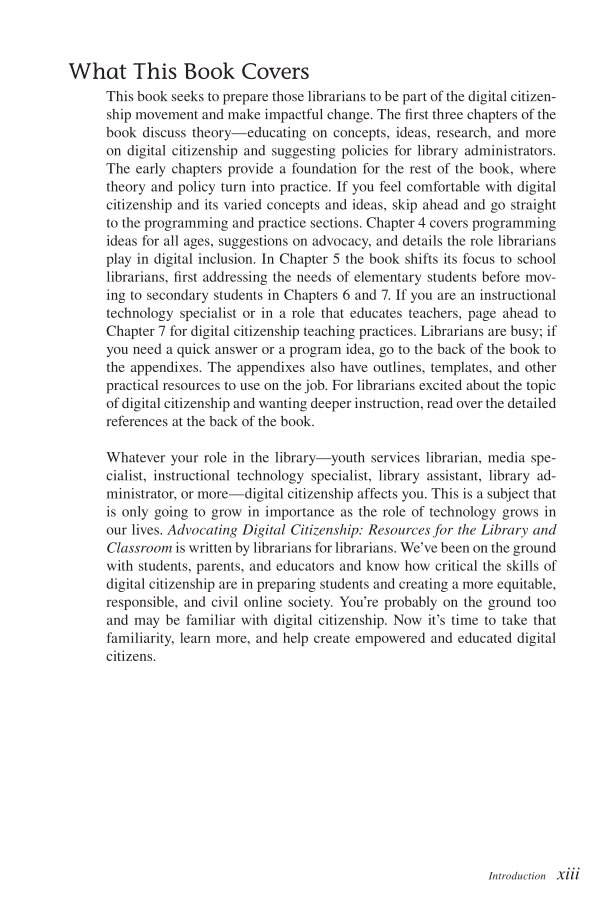Introduction xiii What This Book Covers This book seeks to prepare those librarians to be part of the digital citizen- ship movement and make impactful change. The first three chapters of the book discuss theory—educating on concepts, ideas, research, and more on digital citizenship and suggesting policies for library administrators. The early chapters provide a foundation for the rest of the book, where theory and policy turn into practice. If you feel comfortable with digital citizenship and its varied concepts and ideas, skip ahead and go straight to the programming and practice sections. Chapter 4 covers programming ideas for all ages, suggestions on advocacy, and details the role librarians play in digital inclusion. In Chapter 5 the book shifts its focus to school librarians, first addressing the needs of elementary students before mov- ing to secondary students in Chapters 6 and 7. If you are an instructional technology specialist or in a role that educates teachers, page ahead to Chapter 7 for digital citizenship teaching practices. Librarians are busy if you need a quick answer or a program idea, go to the back of the book to the appendixes. The appendixes also have outlines, templates, and other practical resources to use on the job. For librarians excited about the topic of digital citizenship and wanting deeper instruction, read over the detailed references at the back of the book. Whatever your role in the library—youth services librarian, media spe- cialist, instructional technology specialist, library assistant, library ad- ministrator, or more—digital citizenship affects you. This is a subject that is only going to grow in importance as the role of technology grows in our lives. Advocating Digital Citizenship: Resources for the Library and Classroom is written by librarians for librarians. We’ve been on the ground with students, parents, and educators and know how critical the skills of digital citizenship are in preparing students and creating a more equitable, responsible, and civil online society. You’re probably on the ground too and may be familiar with digital citizenship. Now it’s time to take that familiarity, learn more, and help create empowered and educated digital citizens.
Document Details My Account Print multiple pages
Print
You have printed 0 times in the last 24 hours.
Your print count will reset on at .
You may print 0 more time(s) before then.
You may print a maximum of 0 pages at a time.

































































































































































































